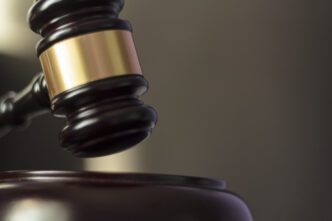In a notable legal development, a judge has set the sentencing date for the hush money case involving former President Donald Trump for January 10, shortly before he is scheduled to take office again. Despite the gravity of the situation, indications suggest that Trump will not face jail time.
Judge Juan M. Merchan, who oversaw the trial of former President Donald Trump, has determined that sentencing will proceed before Trump’s upcoming inauguration. This decision arises from Trump’s conviction in May on 34 counts of falsifying business records linked to an alleged scheme to conceal a payment to Stormy Daniels during the 2016 presidential campaign.
The issue at hand is rooted in a payment made to Daniels, intended to prevent her from disclosing claims of a past affair with Trump. While Trump has consistently denied any wrongdoing, asserting that the payment was an attempt to shield his family from embarrassment, the court found merit in the prosecution’s argument that the payments were disguised as legal expenses to influence the 2016 electoral climate.
Amidst the legal proceedings, Judge Merchan rejected Trump’s appeals to dismiss the verdict due to presidential immunity and the proximity of his reinstatement. The judge argued that the absence of any legal barriers necessitated the completion of sentencing before Trump’s return to the presidency, emphasizing the need for resolution in the interests of justice.
The legal community has been closely watching this case, as Trump is poised to become the first U.S. president elected after being convicted of a felony. This reality imposes unique challenges, with Trump’s attorneys advocating for the dismissal of the case to avoid hindering his presidential duties, while prosecutors proposed several outcomes to acknowledge his looming presidency while upholding the conviction.
Prosecutors have suggested various solutions, including freezing the case during Trump’s term or ensuring his sentencing does not involve incarceration. Another proposal involved closing the case with a formal acknowledgment of both the conviction and the ongoing appeal, drawing from precedents in state courts handling similar situations of defendants who died while appealing their cases.
Trump’s conviction presents potential consequences ranging from fines to probation, or even imprisonment. However, the judge’s decision hints that Trump will likely receive a conditional discharge, a legal outcome where the case is dismissed if no further legal issues arise.
Significantly, this case marked the sole trial among multiple indictments Trump faced, including federal charges related to attempts to overturn the 2020 election and mishandling classified documents. These cases have since been closed or paused, while a separate state-level case in Georgia remains largely inactive.
The hush money case attracted widespread attention due to its implications for Trump’s presidency and legal standing. Although Trump has described the legal proceedings as politically motivated, the case’s progression highlights the complexities of balancing legal accountability with Trump’s political future.
The upcoming sentencing on January 10 represents a critical juncture for Donald Trump as he prepares to reassume the presidency. With no jail time anticipated, the legal proceedings underscore the ongoing tension between legal repercussions and political realities. As the nation watches, this landmark case continues to shape the discourse surrounding justice and presidential immunity.
Source: Wsvn







